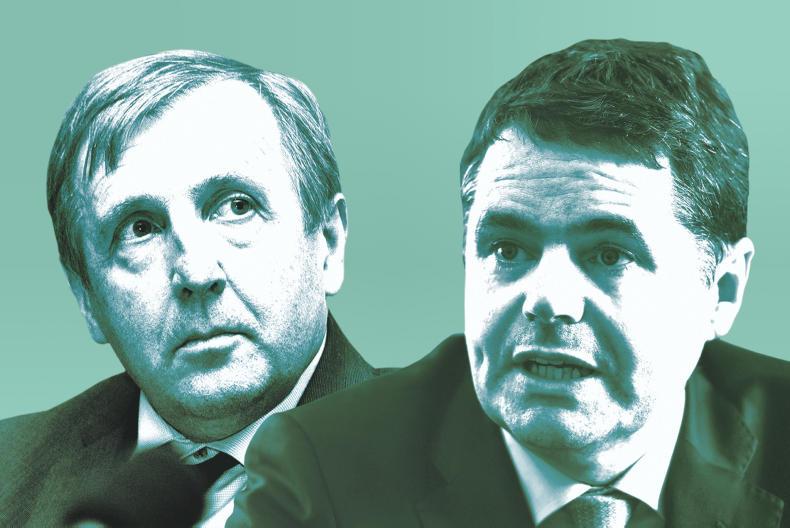Two low-cost loan schemes will be put in place for 2018. The first is designed to help businesses deal with the impact of Brexit. It will be worth €300m with “at least” 40% of this set aside for agribusiness, according to Minister Creed. The second loan will be set up by the Department of Agriculture specifically for farmers, fishermen and food businesses. The Department plans to use €25m as seed money to secure the loan, and though details have yet to be finalised, it’s expected to be worth between €200m to €300m.
Farmers will gain €200 from the increase in the Earned Income Tax Credit, and those earning over €33,800 will gain €300 from the rise in the threshold for the higher tax rate. A combination of Universal Social Charge (USC) cuts and threshold increases will save the average farmer €57 based on last year’s average farm income of €24,000.
An additional €25m has been added to the 2018 budget for the Areas of Natural Constraints (ANC) scheme. This brings the total ANC funding to €230m for next year and means the commitment made in the Programme for Government following the 2016 election has been honoured.
What it means for farmers
More than 100,000 farmers with ANC designations will receive higher payments next year. The average increase works out at €250 per farmer.
The Nursing Home Support Scheme, known as Fair Deal, will see its allocation increase by €9.7m. Minister of State for Mental Health and Older People Jim Daly said this would be shared between efforts to keep waiting lists down and “to support a new initiative for farm assets and small business”. The minister recently proposed a three-year cap on nursing home charges applicable to farm property. However, the scheme’s budget increase was twice as large last year, only to manage numbers.
Land used to develop solar farms now qualifies for Agricultural and Retirement Tax Relief – two schemes providing for vital tax breaks when transferring a farm to the next generation. The tax exemptions are restored as long as solar panels occupy less than 50% of the farm being transferred. The restriction introduced last year had plunged hundreds of farmers into limbo after they entered multi-decade agreements with solar developers and is likely to revive the industry. A budget allocation of €7m will go towards the Renewable Heat Incentive (RHI), leaving little scope for biomass and biogas sectors to benefit significantly next year.
The Farm Assist rate is to increase by €5/week from March 2018. The €5 increase will apply to the maximum weekly rate of Farm Assist, with accompanying increases for qualified adult dependants (€5) and child dependants (€2).
An extra 250 places have been allocated to the Rural Social Scheme as part of Budget 2018, following the addition of 500 additional places in January 2017.
What it means for farmers
Farm Assist weekly payments will rise from €193 to €198.
Some €11.7m in funding has been earmarked for organic farming in Budget 2018. The bulk of the money, €10.5m, is being provided for the Organic Farming Scheme and a further €1.2m has been allocated for development of the organic sector.
An extra €1m would also be made available to organic farmers under the TAMS organic capital investment scheme. However, there is no new organic scheme for new entrants.
A total of €233.8m has been earmarked for agri-environment schemes. GLAS accounts for the majority of the money at €206m, while there is €6m allocated for AEOS, €20m has been allocated to the Sheep Welfare Scheme, while €50m has been pencilled in for next year’s Beef Data and Genomics Programme (BDGP). A total of €23m has been allocated to Knowledge Transfer programmes next year. The Targeted Agricultural Modernisation Scheme (TAMS) has €70m allocated to it – an increase of €20m on 2017. Forestry spending will be €106m next year, while €5m has been earmarked for capital investment in the horticulture sector. €87m has been allocated to food safety, animal health and welfare, which will include €34m for TB and Brucellosis eradication. The Department of Agriculture will receive an additional €64m from the Exchequer.
Budget 2018: what didn't happen
Listen: farmer fury over €14m land tax bombshell







 This is a subscriber-only article
This is a subscriber-only article










SHARING OPTIONS: